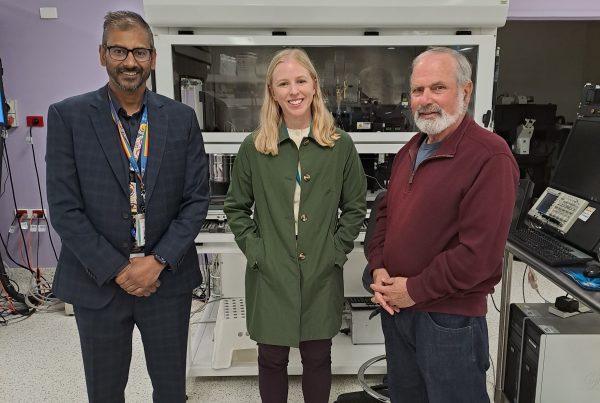What you need to know about superannuation
What is superannuation? How does it all work and why is it something you should be thinking about? These questions can seem tricky to answer but as complex as it might seem, understanding superannuation, what benefits and insurances are attached to it and how you might get early access to it if you need to, doesn’t need to be difficult.
What is superannuation?
The Australian Taxation Office, or the ATO, defines superannuation (or super) as “money put aside by your employer over your working life for you to live on when you retire from work”.
Your employer pays money, or what is called contributions, into your nominated superannuation account. This money is on top of your salary or wages. You can also make your own contributions to your super though there are limits or caps on what you can contribute in a financial year.
You can choose what superannuation fund you want your employer to make contributions to. If you don’t choose or nominate the superannuation fund you want your contributions paid into, your employer may open an account with their default fund.
YourSuper is an Australian Government initiative that can help you compare various super funds and choose the one that best suits your needs.
How can you get early access to your superannuation?
There are strict rules around accessing your super. Generally, you gain access when you retire or when you reach your preservation age which is the age you are allowed to access your super. Your preservation age will depend on what year you were born.
However, there are other circumstances when you may be able to access your super early. These include:
- Compassionate grounds
- Severe financial hardship
- Temporary or permanent incapacity
- Terminal medical condition
Compassionate grounds
Early access to superannuation on compassionate grounds is limited to very specific circumstances including:
- medical treatment and medical transport for you or your dependant
- making a payment on a home loan or council rates so you don’t lose your home
- modifying your home or vehicle to accommodate your or your dependant’s severe disability
- palliative care for you or your dependant
- expenses associated with the death, funeral or burial of your dependant
The ATO provides more detailed information on eligibility to compassionate release of super.
Severe financial hardship
Accessing your super early due to severe financial hardship requires that you have been on eligible government income support continuously for 26 weeks (about 6 months) and that you are unable to meet your reasonable and immediate living expenses.
The ATO provides more information on how you can access your super due to severe financial hardship.
Temporary or permanent incapacity
Other circumstances in which you may be able to access your super early include if you are temporarily or permanently incapacitated or if you have a terminal medical condition.
The ATO defines a temporary incapacity as being unable to work temporarily, or needing to work fewer hours, “because of a physical or mental medical condition”. When you access your super due to temporary incapacity, you’re generally accessing insurance benefits like income protection. Permanent incapacity in where you have a “permanent physical or mental medical condition that is likely to stop you from every working again”.
Terminal medical condition
Getting access to your super due to a terminal medical condition requires a number of conditions to be met:
- Two registered medical practitioners have certified, jointly or separately, that the person suffers from an illness or an injury that is likely to result in the death of the person within 24 months of the date of the certification.
- At least one of the registered medical practitioners is a specialist practising in an area related to the illness or injury suffered by the person.
- The 24-month certification period has not ended.
When it comes to accessing your superannuation early, in many cases, it’s advisable to get legal advice about what your options are before making a claim.
What about Income Protection insurance and Total and Permanent Disability?
Income Protection (IP) and Total and Permanent Disability (TPD) are the two common types of insurance offered by super funds. IP is paid as a monthly benefit while TPD is usually paid as a lump sum.
Eligibility to insurance through superannuation is generally provided automatically, so you don’t have to fill out any forms or disclose any pre-existing conditions.
Income Protection or IP is also sometimes called salary continuance benefits. They usually kick in after a waiting period and can last for up to 2 or 5 years and sometimes even up until you’re 67 years old. The payments can be either a set amount or up to 75% of your usual previous earnings.
While definitions of Total and Permanent Disability vary between superannuation funds, generally it requires that you be permanently unable to work due to injury or illness. It’s worth noting that this doesn’t mean you have to be unfit for all work, only for your usual job or work that fits your education, training or experience.
What about death benefits?
Death benefits are generally made up of the balance in your super account and any insurance benefits you may have.
These death benefits are typically paid to your dependants. Dependants are defined as:
- your legally married spouse
- your de facto spouse
- children (although sometimes only those under 18)
- financial dependants (total and partial), and
- interdependent (people with whom you have a close personal relationship, live with and provide each other with financial and domestic support and personal care unless unable to do so because of a disability).
Resources
The Australian Tax Office provides an overview of superannuation, as does the government-funded program, Moneysmart.
Services Australia also provides some resources about how superannuation affects other payments and services, including Carer Payments, the Age Pension and Youth Allowance.
This article was published in January, 2022.
Please note this information is general in nature and if you have questions about superannuation, early access to superannuation, Income Protection insurance, Total and Permanent Disability or accessing Death Benefits, you should seek legal advice or speak to a licensed financial adviser.




